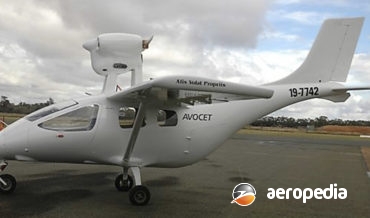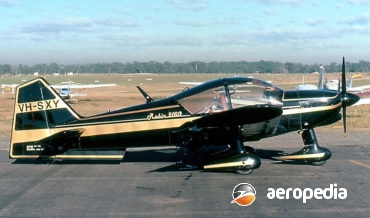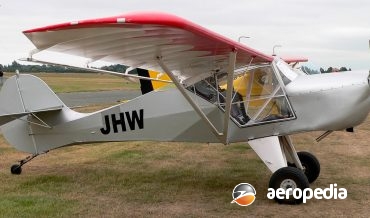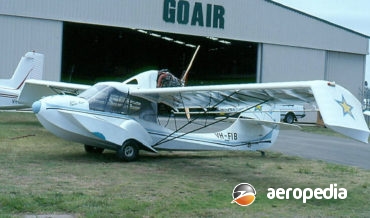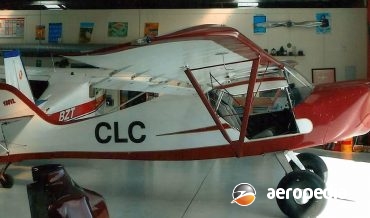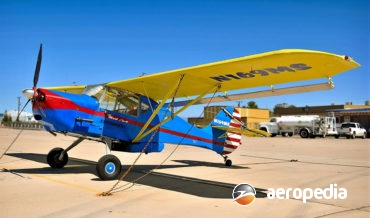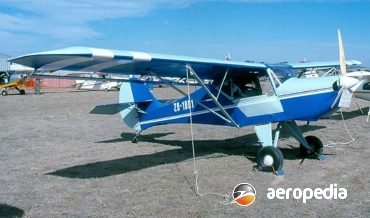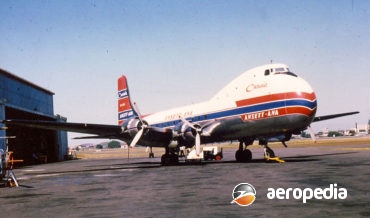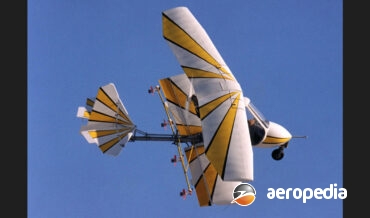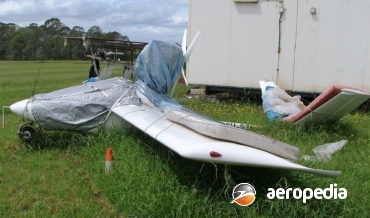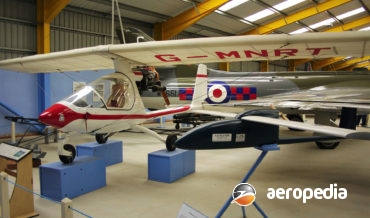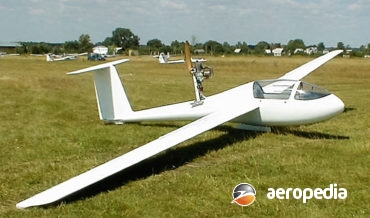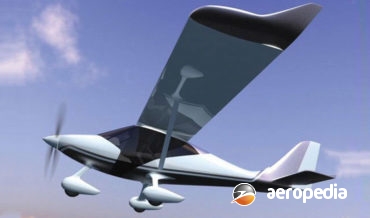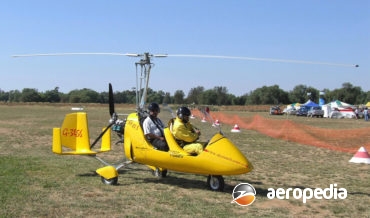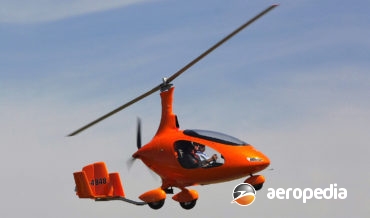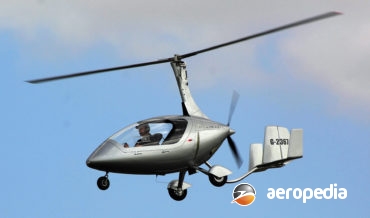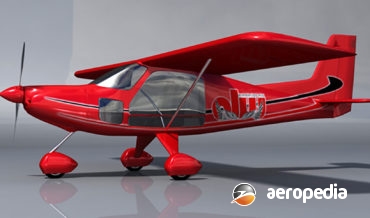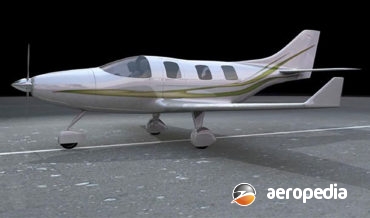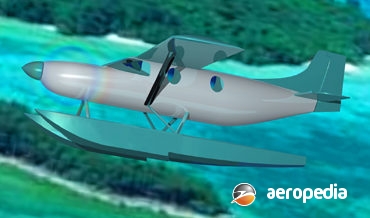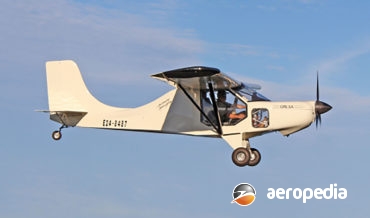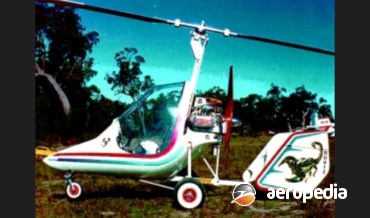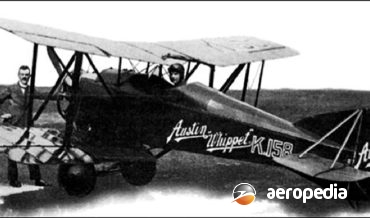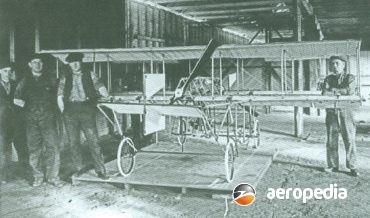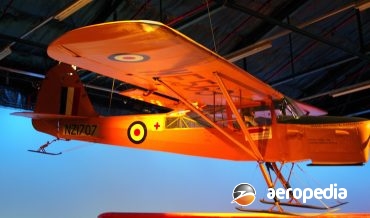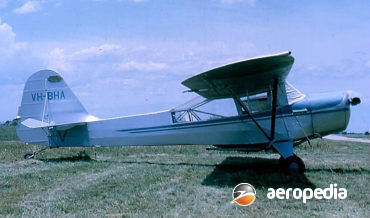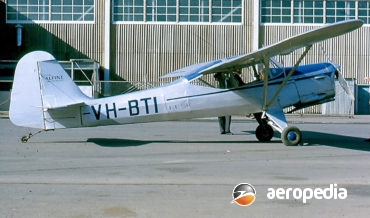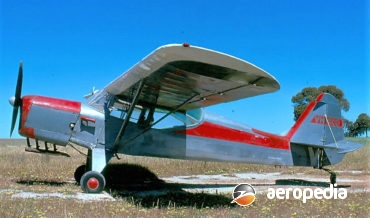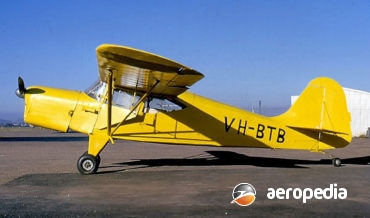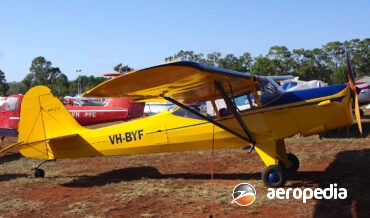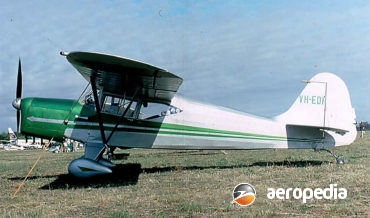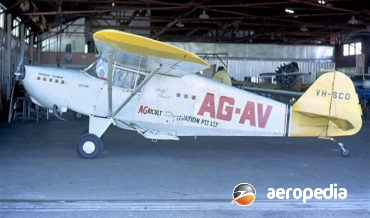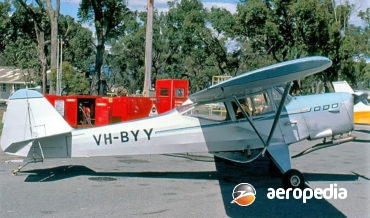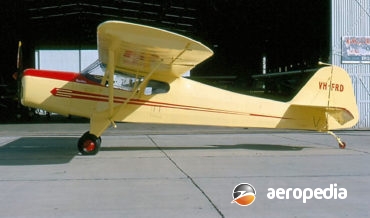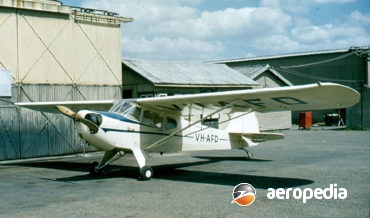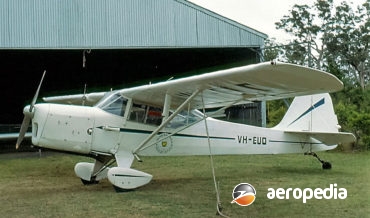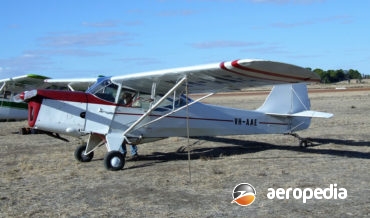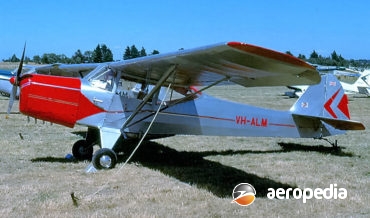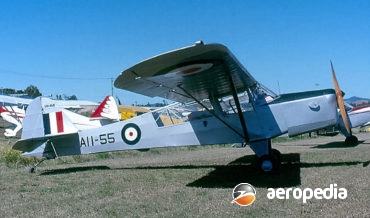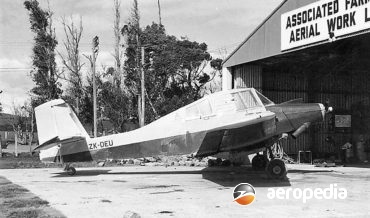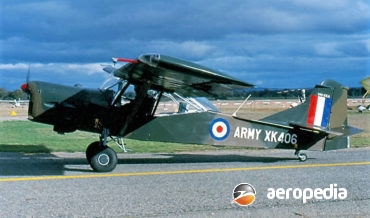All Contents
Contents
The Outback is a two-seat light sporting aircraft designed and built my Michael Sharples with the assistance of his son-in-law Alex and son Nicholas.
David C. Eyre
- May 8, 2019
In 1957 Centre Est Aeronautique was formed in France to design and manufacture a series of light aircraft for touring and training purposes.
David C. Eyre
- May 8, 2019
The Mark IV and Speedwing are produced by Avid Aircraft of Caldwell Idaho in kit form are examples of a range of aircraft produced in this form to meet the requirements of amateur builders around the world for light aircraft with a good performance that are cheap and easy to
David C. Eyre
- May 8, 2019
The Avid Catalina, also known as the Avid Amphibian, was designed by Dean Wilson and was aimed at the small amphibian market, for owners interesting in flying and fishing.
David C. Eyre
- May 8, 2019
The Magnum is one of a series of light kit-built aircraft produced by Avid Aircraft Inc of Idaho, and is one of the larger aircraft produced in the range by the company
David C. Eyre
- May 8, 2019
The Bandit is one of a range of aircraft produced by Avid Aircraft. The Company was originally known as Light Aero Inc and commenced business in Caldwell, Idaho.
David C. Eyre
- May 8, 2019
The Avid Flyer was produced in kit form by Avid Aircraft Inc of Caldwell, Idaho, in kit form for amateur constructors, being available in the homebuilt or ultra-light category.
David C. Eyre
- May 8, 2019
The Carvair was a relatively cheap conversion of the DC-4 / C-54 series of World War II transport by Aviation Traders (Engineering) Ltd at Southend, Essex, for an aircraft to carry 23 passengers and five cars from the United Kingdom to various parts of the European continent.
David C. Eyre
- May 8, 2019
Design of the MAI-890 began in 1989 in Moscow, the prototype flying for the first time in the following year, production aircraft commencing to be delivered in 1991.
David C. Eyre
- May 8, 2019
The Kolibri Is A European Designed Light Two-Seat Ultra-Light Aircraft Of Composite Construction With Fabric Covered Movable Surfaces And A V-Tail.
David C. Eyre
- May 8, 2019
The Sirocco was a French designed high-wing braced monoplane with a pusher engine. The fuselage was construction from fibreglass and polyester, was streamlined and could be fully enclosed or built with an open cockpit and windscreen.
David C. Eyre
- May 8, 2019
The AC-5M was developed by Aviastroitel in Russia, being one of a series of gliders / sailplanes developed by that company.
David C. Eyre
- May 8, 2019
An entrant into the field of light sports aircraft was the Aveo Phantom in 2008 was a two-seat, high-wing light sport aircraft (LSA) monoplane developed at Kosice in Slovakia.
David C. Eyre
- May 8, 2019
Autogyros Aviacion of Madrid, Spain, has for some years been designing and developing light autogyros for the light sport aircraft market.
David C. Eyre
- May 8, 2019
The Cavalon is a development of the Calidus by the manufacturer of this series of machines, AutoGyro GmbH of Hildesheim in Germany, and before that the MT-03 series, featuring two-seats and having fully adjustable seating, controls and a large fuel capacity to give good range.
David C. Eyre
- May 8, 2019
The Calidus is a development of the company’s MT-03 gyrocopter and basically differs in having a fully enclosed cockpit but is similar in configuration.
David C. Eyre
- May 8, 2019
The Tapis was designed by Australian LightWing of Ballina NSW as a new variant of the SP [Speed] series with high-wing configuration rather than low-wing and entered production in kit and fully complete form during 2012.
David C. Eyre
- May 8, 2019
Australian LightWing, formerly known as Hughes Aircraft, has since 1985 designed, developed and produced a series of light aircraft for the Australian market, having, by the end of 2009, delivered 175 aircraft with some 20 percent of these sold in kit form.
David C. Eyre
- May 8, 2019
Australian Lightwing is based at Ballina, NSW and was set up to build ultralight and light aircraft for the Australian market, originally known as Hughes Aircraft, part of the Hughes Group, being operated by Howard and Nicholas Hughes.
David C. Eyre
- May 8, 2019
The Lightwing GR-LSA is a development of the Hughes Lightwing series and is a two-seat, side-by-side, light sporting high-wing monoplane constructed of 6061T6 high tensile aluminium airframe, the underside of the outboard wing panels being covered with Ceconite, and the control surfaces are fabric covered.
David C. Eyre
- May 8, 2019
Australian Autogiro was founded by Edward Minty of Turramurra, NSW and he built a series of gyrocopters which were supplied to purchasers in either kit form or as a complete aircraft.
David C. Eyre
- May 8, 2019
The Whippet was designed by J W Kenworth, and built in 1919 by the well known British automotive manufacturer, Austin Motors Co Ltd. Powered by a 34-kw (45-hp) Anzani engine, it was aimed at operation by the private owner.
David C. Eyre
- May 8, 2019
George Brougham Hubert Austin was born in South Yarra, VIC on 28 February 1860 and during his career worked as an architect with the Department of Public Works in Victoria, being responsible for a number of buildings in Melbourne. In 1907 he attended the 1st Aero Exhibition in London and
David C. Eyre
- May 8, 2019
Following the cessation of hostilities in World War II, the Auster company decided to develop the AOP-6 air-observation-post aircraft for postwar use by the RAF.
David C. Eyre
- May 8, 2019
The Auster series of light aircraft was developed from the Taylorcraft series of light cabin monoplanes designed in the United States by C Gilbert Taylor, who had emigrated from Nottingham, and produced by Taylorcraft.
David C. Eyre
- May 8, 2019
The Alpine series was introduced to the Auster range in 1955, being a development specially for operations from high-altitude airfields in hot climates.
David C. Eyre
- May 8, 2019
The designation J-5H was applied to one aircraft (VH-ADS) and the designation J-5GL was applied to a J-5G which (ZK-CXA) was rebuilt in New Zealand to take a Lycoming engine. The J-5H was registered in Australia. This aircraft was built as a J-5B (VH-ADS - c/n 2047) and was imported
David C. Eyre
- May 8, 2019
The J-5G was a more powerful variant of the J-5B and had some strengthening to allow the installation of a more powerful engine, this involving the fitting of several extra tubular front members.
David C. Eyre
- May 8, 2019
Despite the appellation ‘Aiglet’, the J-5F series was not derived from the J-1B Aiglet. The J-5F was basically a J-5 with a widened and strengthened fuselage to permit the Aiglet Trainer to be fully aerobatic, the only Auster to be fully certified in this role.
David C. Eyre
- May 8, 2019
Following the success of the three-seat Autocrat, Auster’s chief designer, R E Bird used the experience gained from the design of the Alpha, which did not proceed to production in any numbers, and came up with a four-seater of similar specifications.
David C. Eyre
- May 8, 2019
In 1962 Agricultural Aviation Pty Ltd of Archerfield, QLD, decided to convert an Auster J-5 Adventurer for agricultural duties, converting it from a three-seater to a single-seater, fitting an American Lycoming six-cylinder engine and installing a hopper in the rear of the cockpit and spray bars.
David C. Eyre
- May 8, 2019
The three-seat Auster J-5 Autocrat was basically a more powerful version of the J-1 Autocrat but, unlike the similarly engined Aiglet and Alpha, the J-5 did not have the larger vertical tail surfaces provided on those aircraft to compensate for the extra power.
David C. Eyre
- May 8, 2019
Because of import restrictions on American-built engines for some years after World War II, Auster Aircraft decided to fit a British-built engine (the Cirrus Minor) to an Auster Arrow airframe.
David C. Eyre
- May 8, 2019
The J-2 Arrow was the first post-war touring aircraft designed by Auster Aircraft Ltd as a successor to the pre-war Taylorcraft Plus C monoplane.
David C. Eyre
- May 8, 2019
In 1950 an Autocrat airframe was converted by Auster to J-1B configuration, being fitted with a Gipsy Major I engine and a larger horn balanced rudder.
David C. Eyre
- May 8, 2019
Introduced in 1950, the prototype J-1B Aiglet was a converted Autocrat with a Gipsy Major 1 engine and a larger horn-balanced rudder.
David C. Eyre
- May 8, 2019
During the latter stages of World War II the Taylorcraft design team decided to build a lower powered version of the Auster Mk 5 and a prototype, originally known as the Taylorcraft Auster Mk 5 Series J-1 Autocrat, was built and flown.
David C. Eyre
- May 8, 2019
The Auster series was initially derived from the Taylorcraft Model D series and was built for the British Army for the air-observation-post role.
David C. Eyre
- May 8, 2019
The Agricola agricultural aircraft was designed by the chief designer of Auster Aircraft Ltd, R E Bird, in the 1950s following a tour he made of New Zealand to examine the requirements of agricultural operators.
David C. Eyre
- May 8, 2019
The Auster AOP-9 was designed specifically for the British Army Air Corps as an air-observation-post aircraft to replace previous Auster variants which had been civil designs converted to fill that role.
David C. Eyre
- May 8, 2019
Recent Comments
Archives
Categories
- No categories
Categories
- No categories
Latest Posts
Newsletter

